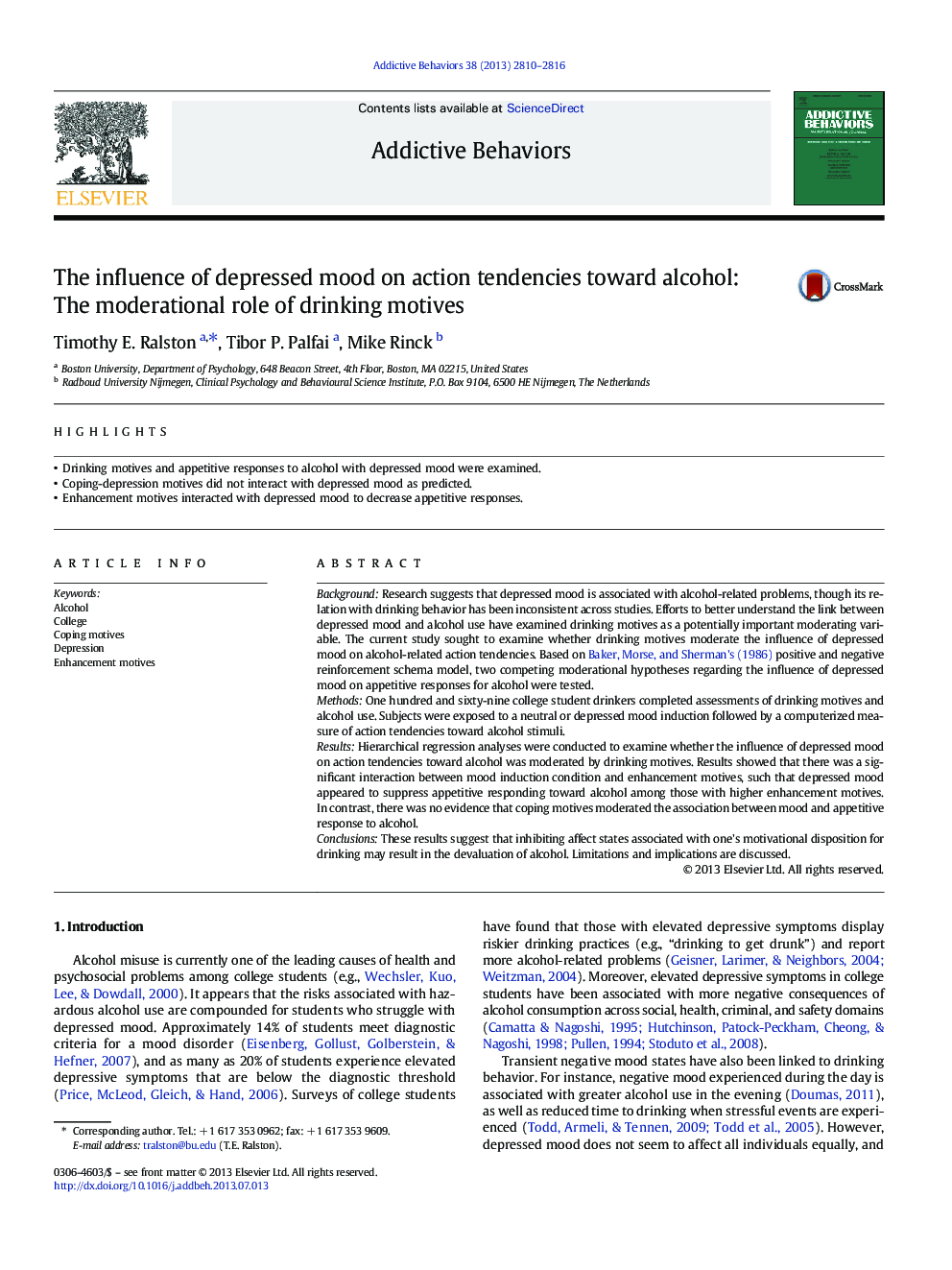| کد مقاله | کد نشریه | سال انتشار | مقاله انگلیسی | نسخه تمام متن |
|---|---|---|---|---|
| 898838 | 915345 | 2013 | 7 صفحه PDF | دانلود رایگان |

• Drinking motives and appetitive responses to alcohol with depressed mood were examined.
• Coping-depression motives did not interact with depressed mood as predicted.
• Enhancement motives interacted with depressed mood to decrease appetitive responses.
BackgroundResearch suggests that depressed mood is associated with alcohol-related problems, though its relation with drinking behavior has been inconsistent across studies. Efforts to better understand the link between depressed mood and alcohol use have examined drinking motives as a potentially important moderating variable. The current study sought to examine whether drinking motives moderate the influence of depressed mood on alcohol-related action tendencies. Based on Baker, Morse, and Sherman's (1986) positive and negative reinforcement schema model, two competing moderational hypotheses regarding the influence of depressed mood on appetitive responses for alcohol were tested.MethodsOne hundred and sixty-nine college student drinkers completed assessments of drinking motives and alcohol use. Subjects were exposed to a neutral or depressed mood induction followed by a computerized measure of action tendencies toward alcohol stimuli.ResultsHierarchical regression analyses were conducted to examine whether the influence of depressed mood on action tendencies toward alcohol was moderated by drinking motives. Results showed that there was a significant interaction between mood induction condition and enhancement motives, such that depressed mood appeared to suppress appetitive responding toward alcohol among those with higher enhancement motives. In contrast, there was no evidence that coping motives moderated the association between mood and appetitive response to alcohol.ConclusionsThese results suggest that inhibiting affect states associated with one's motivational disposition for drinking may result in the devaluation of alcohol. Limitations and implications are discussed.
Journal: Addictive Behaviors - Volume 38, Issue 12, December 2013, Pages 2810–2816